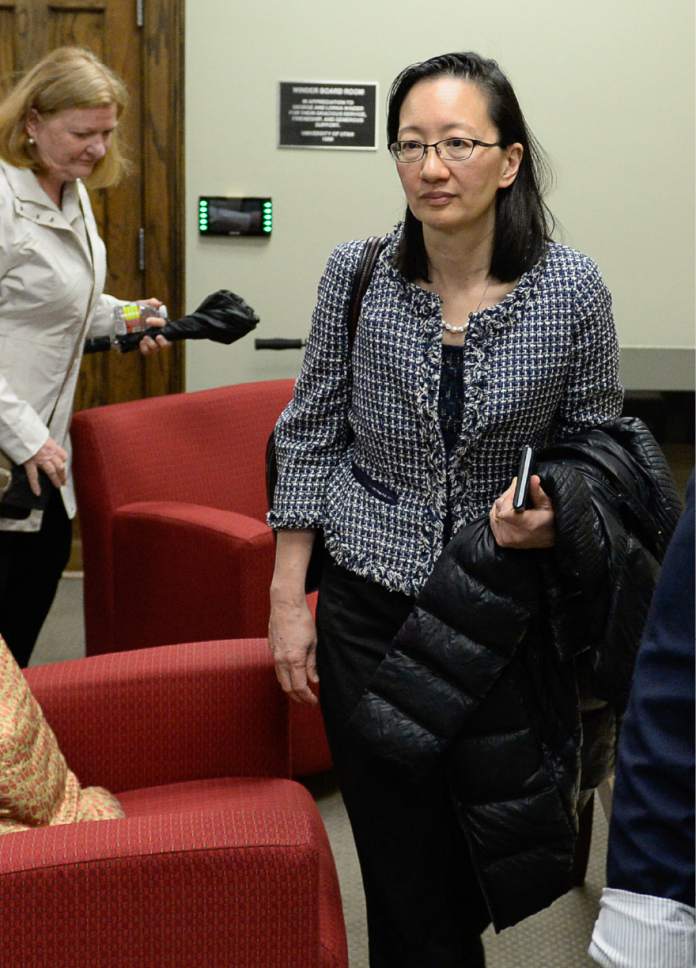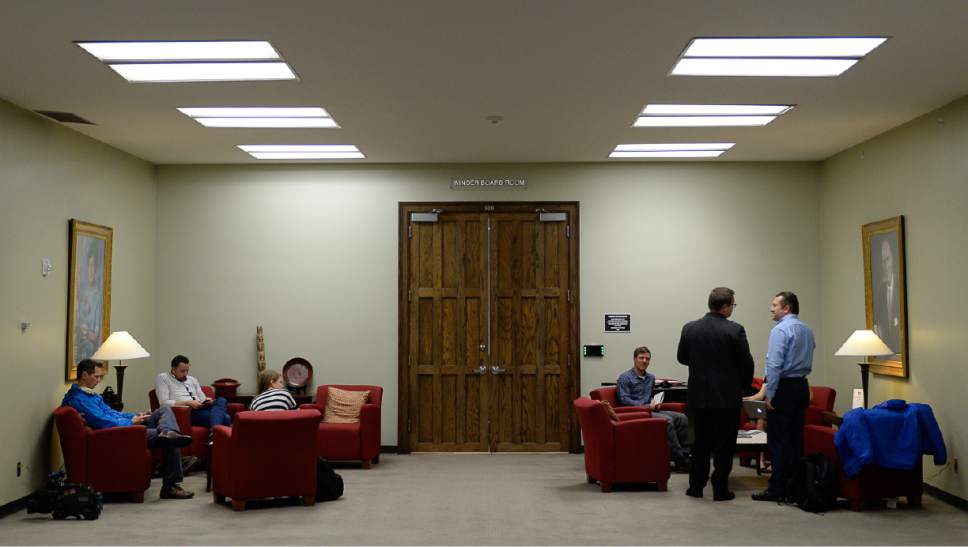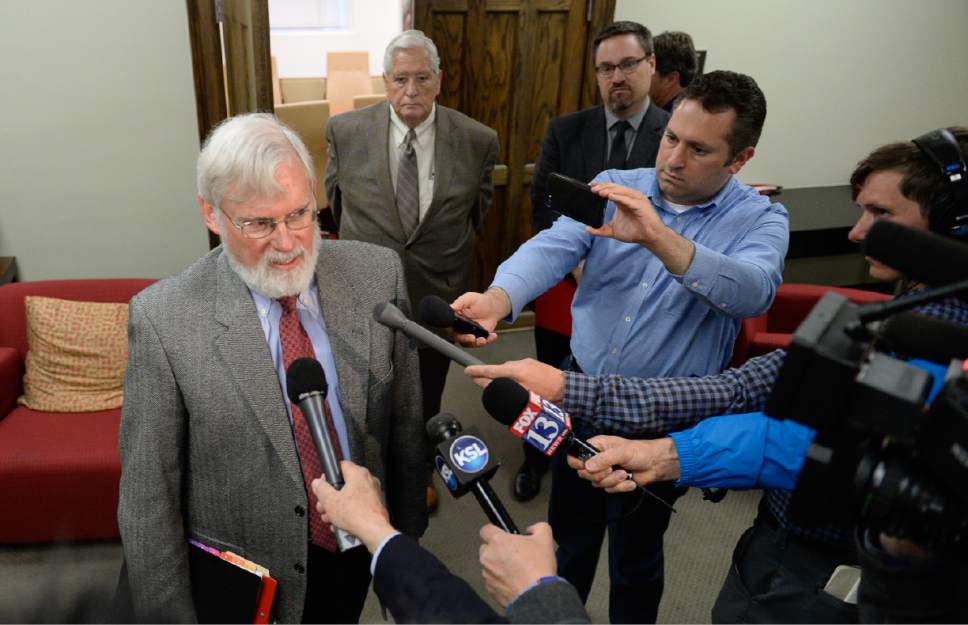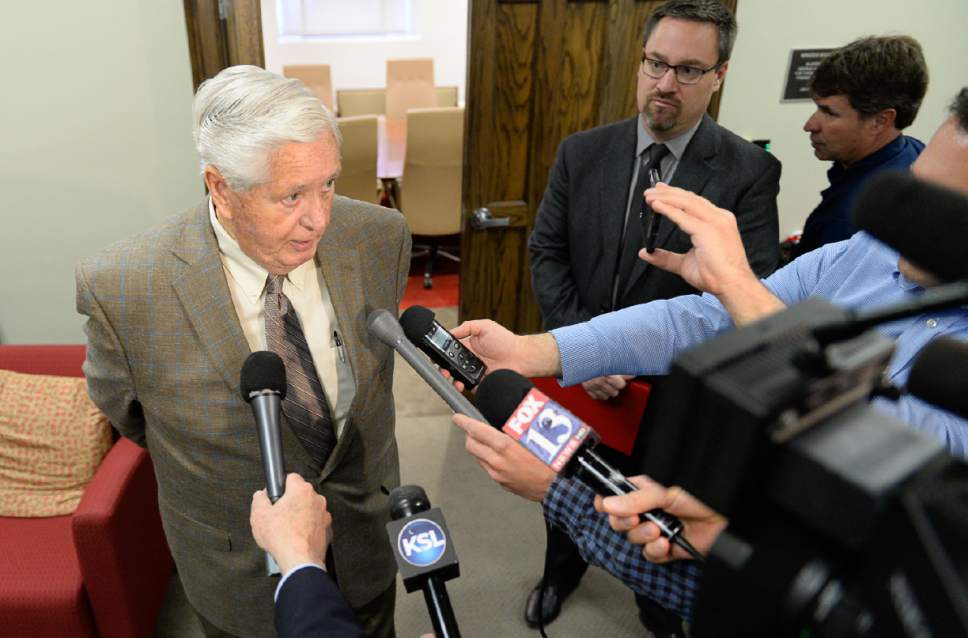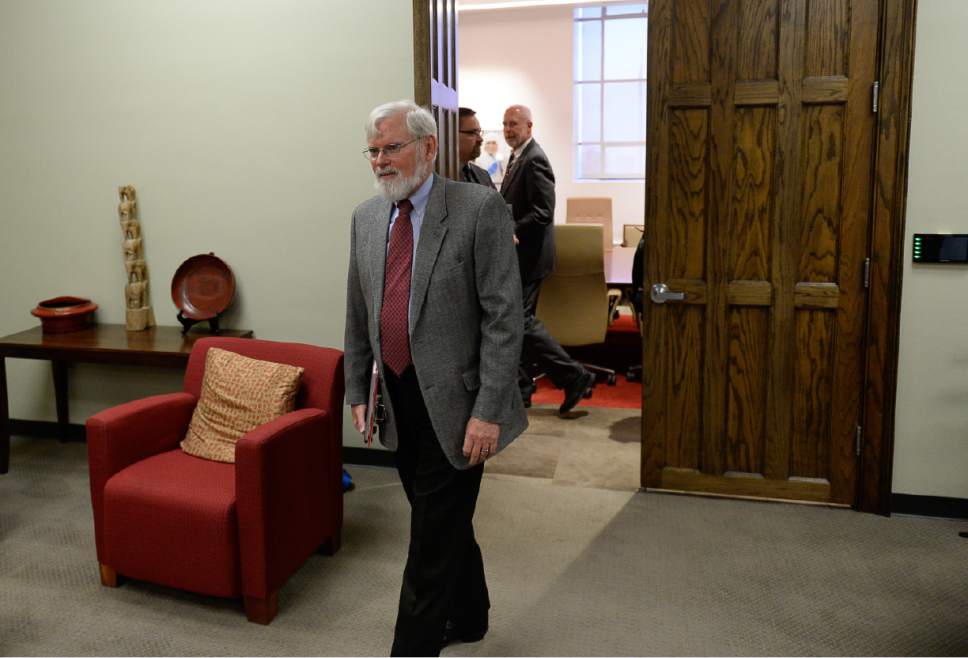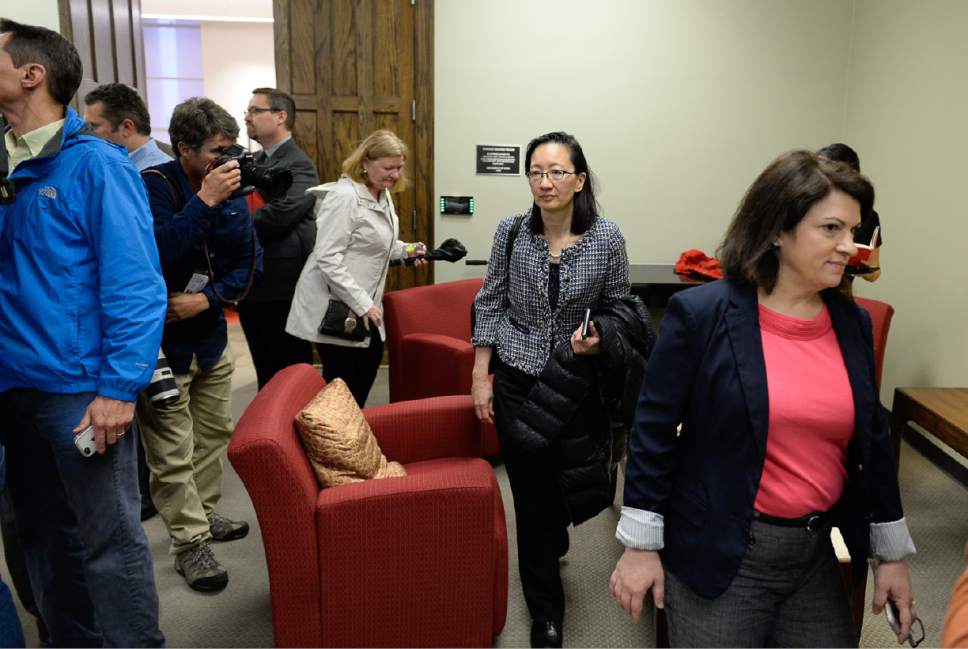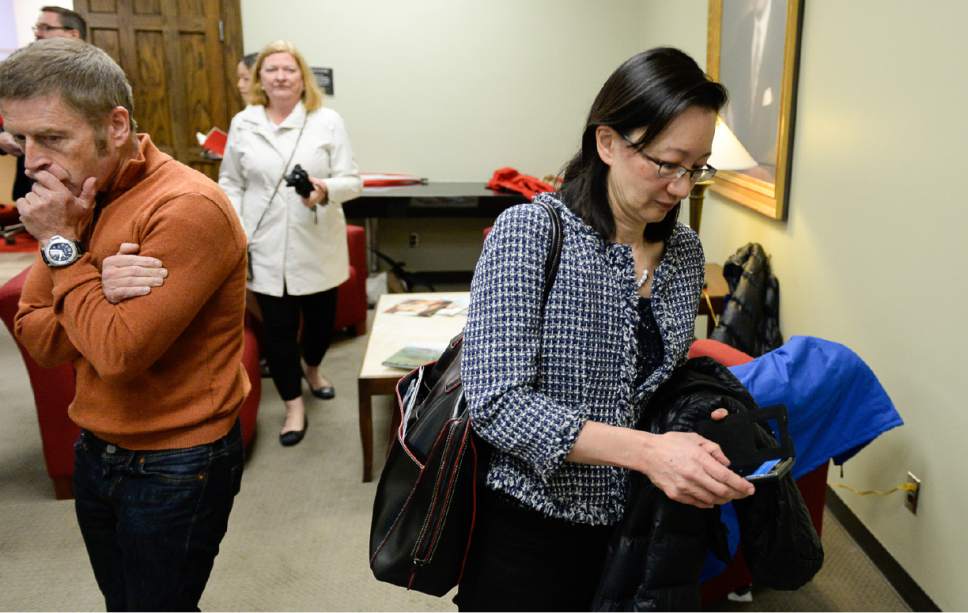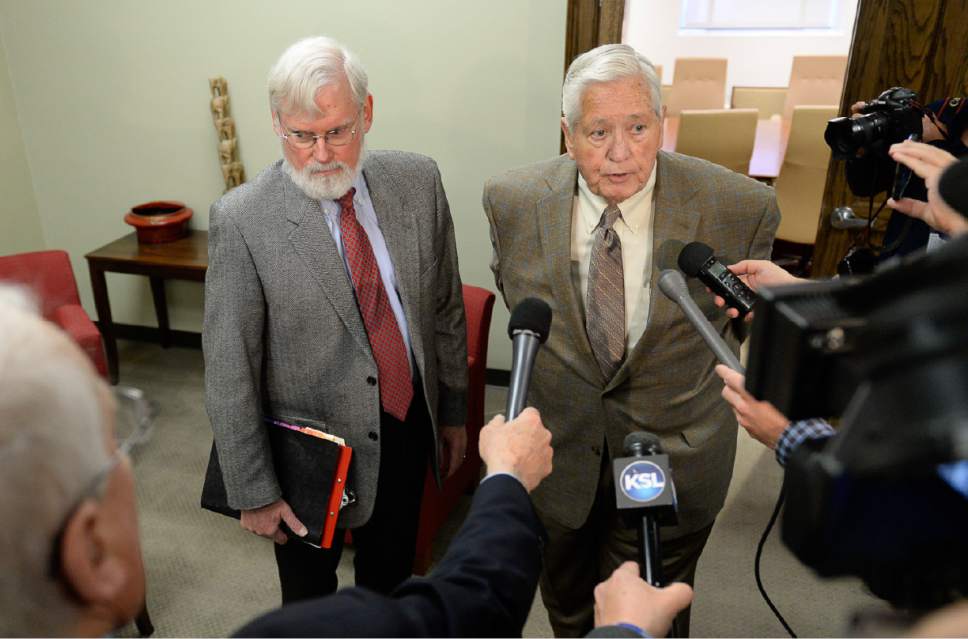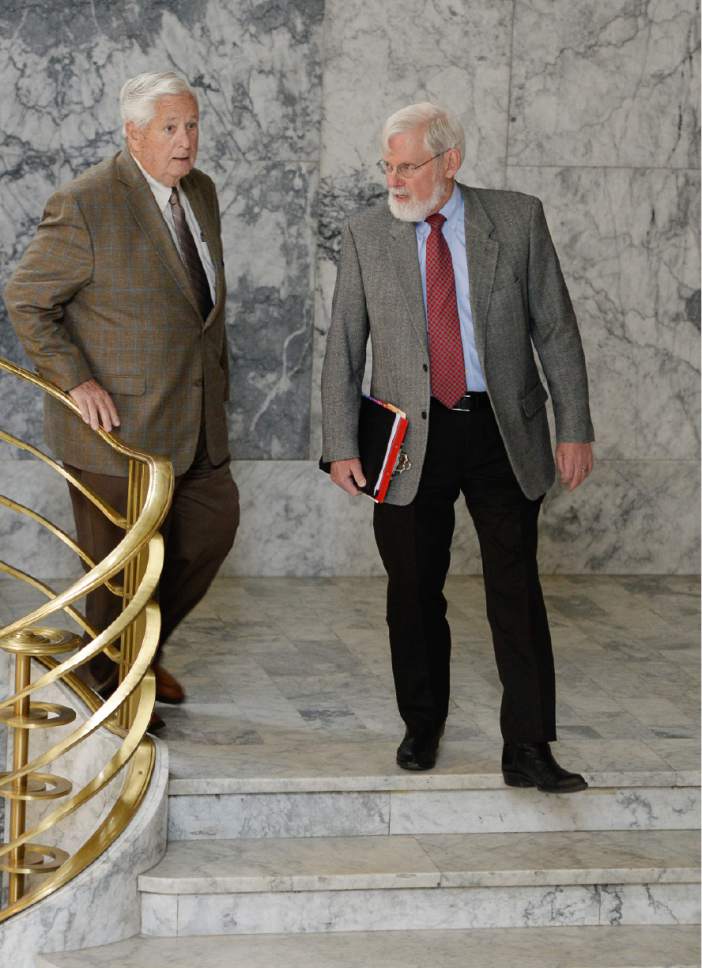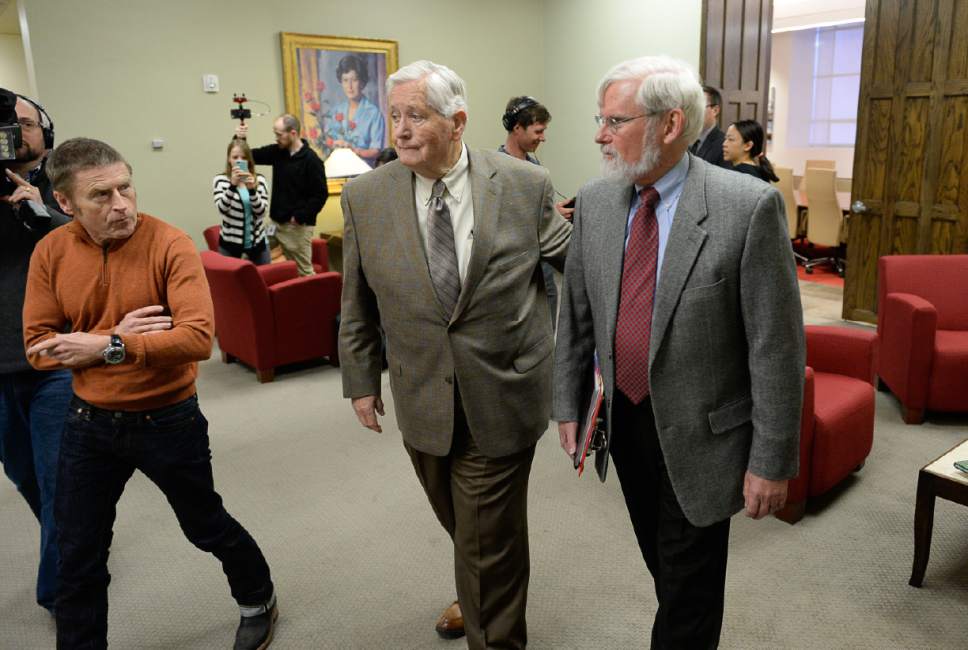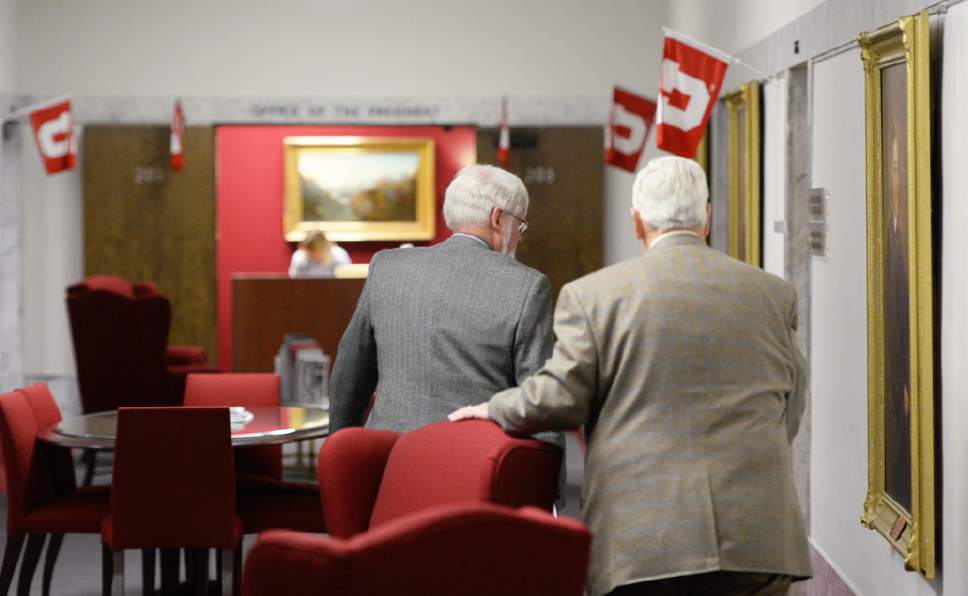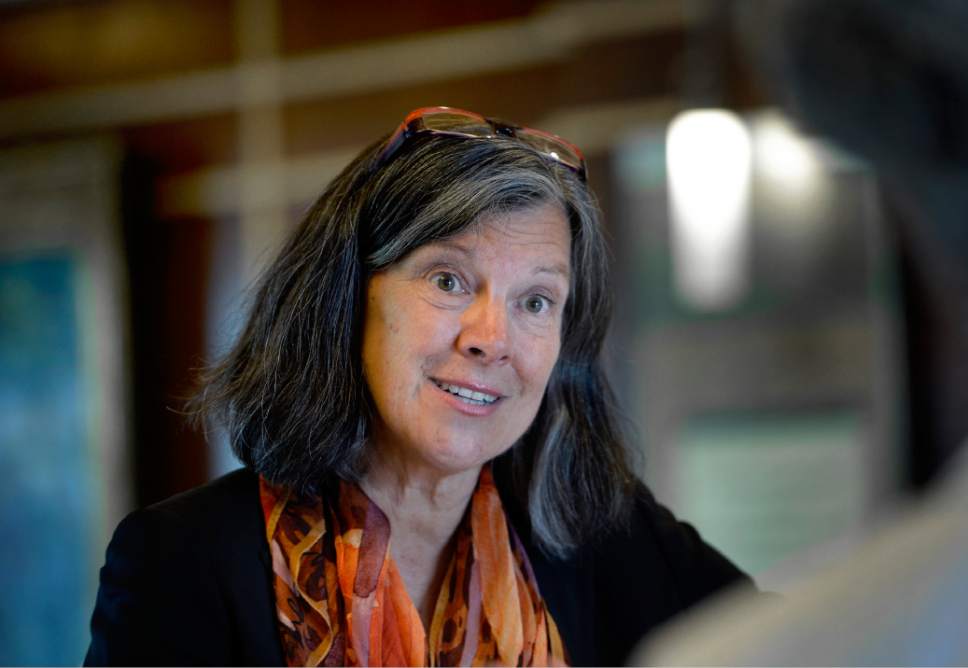This is an archived article that was published on sltrib.com in 2017, and information in the article may be outdated. It is provided only for personal research purposes and may not be reprinted.
Mary Beckerle was reinstated Tuesday to her position as director and CEO of the Huntsman Cancer Institute, under a new chain of command that has her reporting directly to University of Utah President David Pershing.
One week after Beckerle's abrupt firing via email, Pershing announced a full reversal of the decision that has roiled the Salt Lake City campus with faculty protests and angry words from prominent donor Jon Huntsman Sr.
And in restoring Beckerle, Pershing also moved to wall off management of Huntsman Cancer Institute from U. Health Care CEO Vivian Lee, granting Huntsman's demands in recent days as controversy over the firing grew.
In a prepared statement, Pershing said Tuesday that the campus community members had "made their perspectives known" and it was time to return to the mission of serving students, caring for patients and pursuing research.
"Effective today, we have changed HCI's reporting structure," Pershing said. "And Dr. Beckerle will report directly to the President of the University. I am very grateful for her committed leadership and look forward to working with her in the coming years."
Pershing also thanked the Huntsman family "for their major financial commitments to the Huntsman Cancer Institute, and especially Jon Huntsman Sr., for his vision, energy and passion for finding ways to cure this terrible disease."
Late Tuesday, Beckerle issued her own statement, saying she was pleased to regain her post and calling the past week a "very difficult one for me and my family."
"What kept me standing, in addition to the support of my family and my unwavering commitment to HCI, was the tremendous, unimaginable outpouring of love and support for Huntsman Cancer Institute and for me personally," Beckerle wrote.
Pershing's announcement followed a closed 90-minute meeting with U. trustees. He did not mention Lee, but he indicated that a new memorandum of understanding was being drafted to clarify the relationship between the institute and the university.
Reached after the announcement, Jon Huntsman Sr. said the Huntsmans were "delighted" by Beckerle's reinstatement. He praised her "remarkable leadership" and noted what he called the "unnecessary embarrassment that this event caused her."
Huntsman, whose family's charitable giving to the U. helped found and grow the cancer institute, also said he anticipates a resumption of temporarily suspended talks over a $130 million funding agreement between the U. and the Huntsman family's foundation.
"We are grateful to President Pershing," the elder Huntsman said, adding that it takes a "particularly insightful individual to recognize a mistake and quickly admit they were wrong."
Many HCI faculty members also welcomed Tuesday's news. Bruce Edgar, a U. professor of oncological sciences, said retaining Beckerle was vital.
"She's kind of the hands of the Huntsmans, the one who's helped to realize Jon Huntsman's vision for a top-ranked cancer center here in Utah," Edgar said. "We really need her, and we're thankful she's staying."
Trudy Oliver, a U. assistant professor of oncological sciences and investigator at the institute, said faculty and staff were "incredibly grateful" for Beckerle's return.
"We think that this is the right and best decision that needed to be made," Oliver said, adding that it "was made in a relatively timely matter."
Oliver — one of several faculty members who penned a letter of support for Beckerle that garnered more than 3,600 signatures online — called her a "tremendous leader" who "inspires passion in everyone."
Beckerle's firing sparked controversy across campus, with several days of faculty and student protests and harsh criticism from the Huntsman family. At various points, Huntsman Sr. has called for the termination of Lee and Pershing, and he blasted H. David Burton, chairman of the U. board of trustees, as an "idiot."
Huntsman said Tuesday that he now hopes Pershing "remains as president. It's been wonderful to work with him in the past."
He said Pershing "was given misleading and inaccurate information from his underlings," and Huntsman singled out Lee, saying she hoped to "get control of the finances and the medical side and take over the cancer institute."
Lee, a leading radiological researcher, has repeatedly refused The Salt Lake Tribune's requests for comment since Beckerle's firing.
But late last week, university officials offered a vigorous defense of Lee's six-year tenure at the U., saying she had helped its sprawling, multibillion-dollar health, biomedical, research and education operations thrive.
Since arriving at the U. in 2011, they noted, Lee has boosted the number of U. medical providers from 1,000 to 1,400, brought two new community clinics online, catapulted the U.'s quality ranking from No. 7 to No. 1 in the nation and increased the flow of grant money to $288 million from $100 million. The U. now supports 1.7 million patient visits annually, school officials said, up from 1 million when Lee was hired.
"We are stronger today than we've ever been," the statement said.
On Tuesday, Ed Clark, chairman of the U. pediatrics department, launched an online petition in "full and unwavering support" of Lee, signed by at least 12 other U. department heads.
The petition said the former vice dean of science at New York University's Langone Medical Center is "imperative to the continuing success and strength of the University of Utah."
Lee, the petition said, has transformed the U. "as an innovator and champion for the institution and for the health of all Utahns."
It remained unclear Tuesday what say, if any, Lee may have in administering Huntsman Cancer Institute in future.
Pershing offered no specifics on the new memo of understanding and its bearing on the U.'s other extensive medical operations.
U. spokeswoman Kathy Wilets said Tuesday's announcement "only changes the reporting structure."
"We continue to be an integrated system with shared clinical and research resources," Wilets said in a statement.
But a direct reporting relationship between a cancer center and a university president is uncommon, according to Joseph Simone, a former clinical director at Huntsman Cancer Institute who now runs a Georgia-based firm offering consulting services on cancer care and research.
In fact, Simone said Tuesday, he was "shocked" at news of the arrangement. "In most places," he said, "the cancer center is viewed as sort of a [university] department," Simone said.
Direct reporting relationships with the university president give cancer centers more freedom, Simone added. In those instances, the president "will keep his eye on it ... [and] that puts a little muscle in the things that the cancer center can do," Simone said. "It gives you a little more power."
Huntsman said the new reporting relationship is important for financial and personnel reasons.
About three years ago, he said, Lee told him she wanted to combine the institute and the medical school so the institute would be a U. research facility.
"I told her not on her life," Huntsman said.
He said he thinks the move to oust Beckerle was related to Lee seeking greater control of Huntsman Cancer Institute's cash reserves, including a budget surplus reportedly estimated at more than $30 million last year alone.
Those funds, he said, were vital to continued cancer research and other institute operations.
The family, Huntsman said, "still puts in an additional $50 million to $60 million a year above and beyond what the medical side brings in. It's a very fine balance when doing research — not many cancer institutes around the world do research."
But he also referred to what he views as a personality mismatch between the upbeat nature of the institute's mission and Lee, whom he described as "negative."
"We work very hard to have spirits high and have morale strong and get patients through difficult ordeals," Huntsman said. "People that are not positive and upbeat in that process need to move to another arena."
He added that having Lee over the institute "was not a pleasant experience."
U. officials, though, said that, thanks to Lee, the U.'s medical center is "well prepared to navigate a rapidly changing health care landscape."
"Transformational leadership involves difficult decisions that can be both disruptive and unsettling," the U. statement on Lee said, "but are necessary to move an institution forward."
Editor's note: Paul Huntsman, the son of Jon Huntsman Sr., is the owner and publisher of The Salt Lake Tribune


